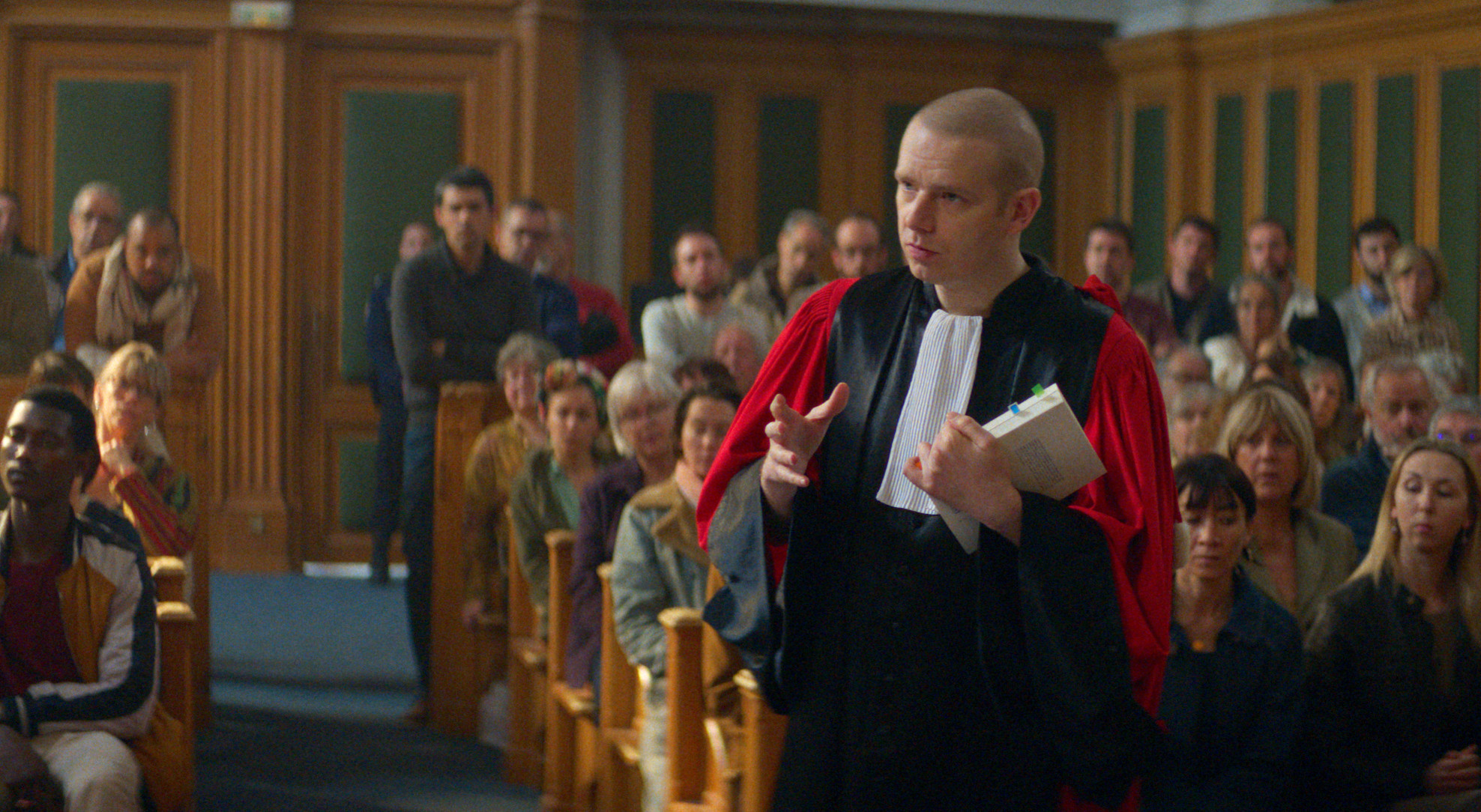Anatomy of a Fall
Anatomie d'une chute
Justine Triet

© Les Films Pelléas, Les Films de Pierre
Sandra, Samuel and their 11-year-old visually impaired son, Daniel, have been living in isolation in the mountains for a year. One day, Samuel is found dead at the foot of their house. An investigation is started into his suspicious death. Sandra is soon charged despite the uncertainty: was it suicide or murder? A year later, Daniel attends his mother’s trial, which lays bare the couple's relationship.
Cast : Sandra Hüller, Swann Arlaud, Milo Machado-Graner, Antoine Reinartz, Samuel Theis, Jehnny Beth
Scenario : Justine Triet, Arthur Harari
Cinematography : Simon Beaufils
Editing : Laurent Sénéchal
Scenario : Justine Triet, Arthur Harari
Cinematography : Simon Beaufils
Editing : Laurent Sénéchal
Production : Les Films Pelléas, Les Films de Pierre
Distribution : Le Pacte
Distribution : Le Pacte
‘What do you want to know?’ The first line of Anatomy of a Fall is spoken by Sandra Voyter, a renowned German writer, interviewed by a student at her home, an isolated mountain chalet, slightly tipsy from a few glasses of wine. Her 11-year-old son, who is visually impaired, is looking after the dog. Upstairs, Samuel, her French husband, is working. Or pretending to, turning up the volume of the music. It is an instrumental version of the song P.I.M.P. by rapper 50 Cent. It is probably a coincidence giving the meaning of the word pimp. Two-and-a-half hours later, the viewer will know a lot about Sandra. Her private life, her work, her infidelities, all her dirty and clean laundry will be aired in public during her trial. She is accused of killing her husband, who was found with his skull crushed at the foot of their house. Suicide or homicide? The coroner does not rule out the involvement of a third party. But two-and-a-half hours later, the truth still eludes us. The whole truth, nothing but the truth, escapes us. A shadow of doubt remains. We owe this to Sandra Hüller's performance, which is relentless, opaque and uncompromising. The opposite of a Barbie doll, in a way. We owe it above all to the writing and direction of Justine Triet, who co-wrote the screenplay with her partner, director Arthur Harari, a screenplay rich in references without ever being overwhelmed by them. We can easily recognise the influence of The Staircase, Jean-Xavier de Lestrade’s documentary series, as well as Otto Preminger’s Autopsy of a Murder. Except that here, the accused is a powerful woman whose husband, we learn, was a teacher and suffered from depression. He homeschooled their son while also trying to write, despite his inability to create. This reversal, not to say deconstruction, of roles is not innocent. It may seem theoretical, but on the contrary, it is tremendously embodied (...). From newspaper interviews to judicial interrogations, words are never neutral in Anatomy of a Fall. They establish a relationship of power. Triet is fond of filming courtrooms – see Victoria with Virginie Efira in a lawyer’s gown – this is because of her taste for verbal jousting, a form that fully embraces the meaning of combat. (Étienne Sorin; Le Figaro)
